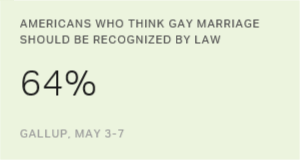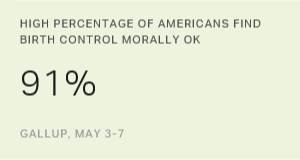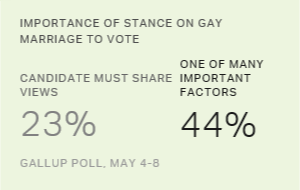Story Highlights
- 64% of Americans say same-sex marriage should be legal
- For the first time, majority of Protestants support gay marriage
- Support for same-sex relations has also climbed, now at 72%
WASHINGTON, D.C. -- Sixty-four percent of U.S. adults say same-sex marriages should be recognized by the law as valid. Although not meaningfully different from the 61% last year, this is the highest percentage to date and continues the generally steady rise since Gallup's trend began in 1996.
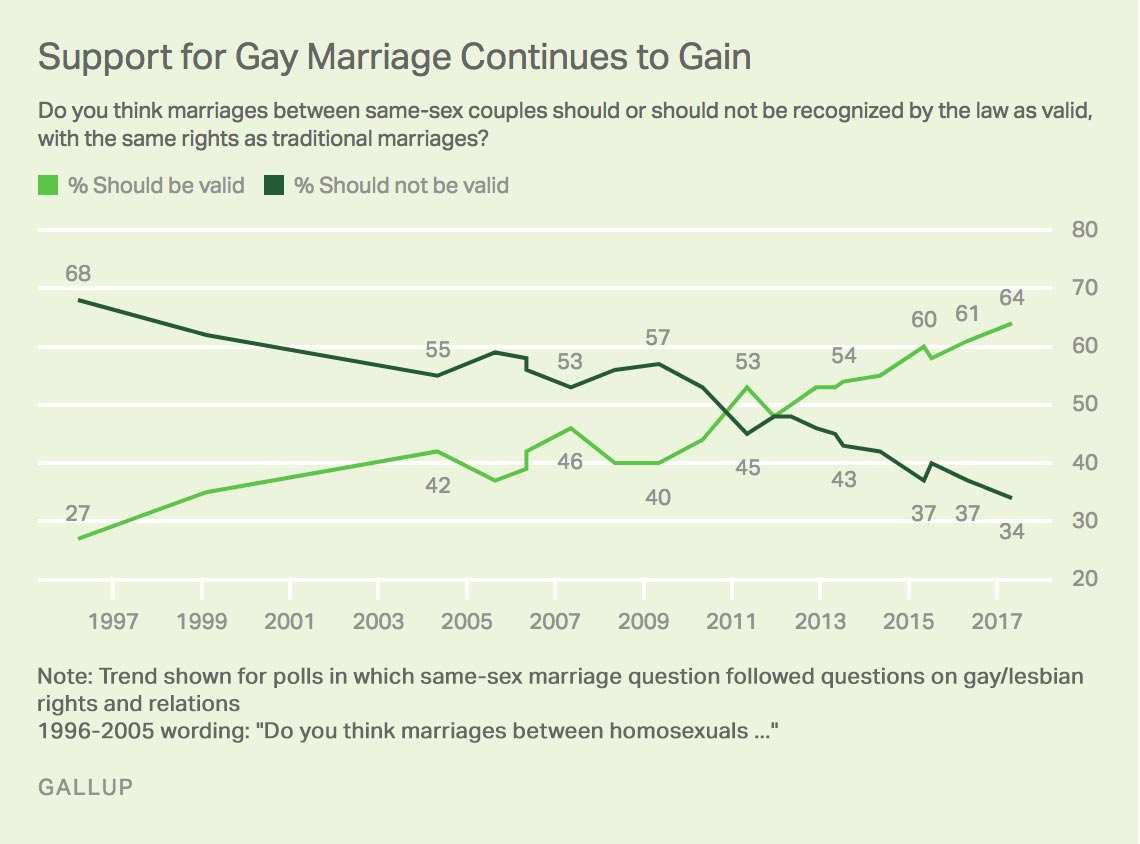
The latest update, from Gallup's annual Values and Beliefs poll conducted May 3-7, comes nearly two years after the Supreme Court ruled that states could not prohibit same-sex marriage.
Since then, debates about same-sex marriage have faded somewhat from public discourse as LGBT rights advocates have focused on other issues, such as transgender bathroom access. But despite the 2015 ruling from the nation's highest court, legal and legislative attempts to protect or challenge same-sex marriage rights continue to bubble up in some states.
Americans' support for same-sex marriage has more than doubled since Gallup first polled on the issue in 1996, when 27% said it should be recognized as valid by the law. In 2004 -- weeks before gay weddings took place in Massachusetts after it became the first state to legalize same-sex marriage -- less than half of Americans (42%) felt such unions should be legally valid. Majority support for gay marriage would not come until May 2011, about a month before New York became the sixth state to legalize it. Since then, support for legal same-sex marriage has steadily climbed, with consistent majorities in favor of it since late 2012.
Support for Gay Marriage Grows Among Independents, Republicans
Over the past two decades, Democrats have almost always been the political group most likely to say gay marriages should be legally recognized. Among Americans who identify as Democrats, support first reached the majority level in 2004, as the issue was heavily politicized in that year's presidential election.
Majority support for gay marriage among political independents followed a few years later, in 2007. The latest poll finds that more than seven in 10 independents (71%) and Democrats (74%) support same-sex marriage.
In recent decades, many GOP leaders adamantly opposed gay marriage, but rank-and-file Republicans' support has nearly tripled since 1996. The current 47% of Republicans favoring it, although not at the majority level, is the highest for this group in the more than two-decade trend.
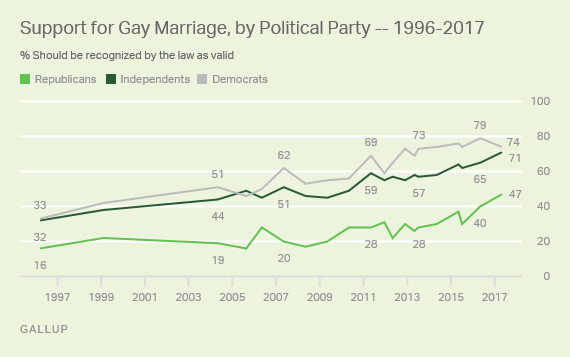
Majority of Protestants Support Gay Marriage for the First Time in Trend
U.S. Protestants, including all non-Catholic Christians, are now about twice as likely to support gay marriage as they were in 1996 (55% vs. 27%). In recent years, some Protestant churches have moved toward supporting same-sex unions; however, this year's poll is the first time Protestant support has reached the majority level.
Meanwhile, a majority of U.S. Catholics have consistently supported same-sex marriage since 2011, which is at odds with the Roman Catholic Church's official position opposing same-sex marriage.
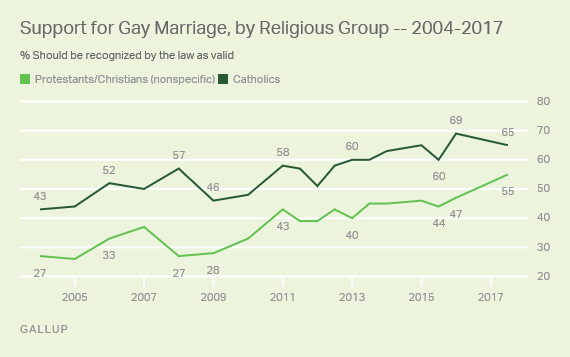
Nearly Three in Four Say Same-Sex Relations Should Be Legal
Americans have consistently been more likely to say that same-sex relations should be legal than to say that gay marriage should be legally valid, suggesting that the marriage question pushes a moral, religious or cultural boundary for some people that gay relationships do not.
When Gallup first polled on the legality of same-sex relations in 1977, 43% said they should be legal. Majority support for legal same-sex relations was first recorded in 2001, at 54% -- two years before the Supreme Court would strike down state laws that banned same-sex sexual activity. Since then, support for same-sex relations has grown, with 72% currently saying they should be legal.
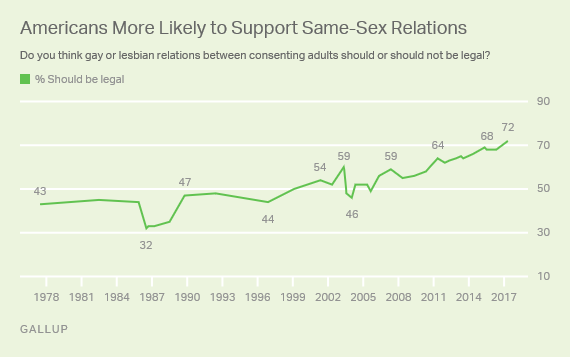
Bottom Line
Though the Supreme Court has settled the legality of same-sex marriage, a third of Americans are opposed to it.
But support for gay marriage has gradually increased over the past two decades, reaching majority support with new groups, as it did with senior citizens in 2016 and Protestants this year. Republicans' support for gay marriage is also at a new high and could trend toward majority support in the near future.
Historical data are available in Gallup Analytics.
Survey Methods
Results for this Gallup poll are based on telephone interviews conducted May 3-7, 2017, with a random sample of 1,011 adults, aged 18 and older, living in all 50 U.S. states and the District of Columbia. For results based on the total sample of national adults, the margin of sampling error is ±4 percentage points at the 95% confidence level. All reported margins of sampling error include computed design effects for weighting.
Each sample of national adults includes a minimum quota of 70% cellphone respondents and 30% landline respondents, with additional minimum quotas by time zone within region. Landline and cellular telephone numbers are selected using random-digit-dial methods.
View survey methodology, complete question responses and trends.
Learn more about how the Gallup Poll Social Series works.
